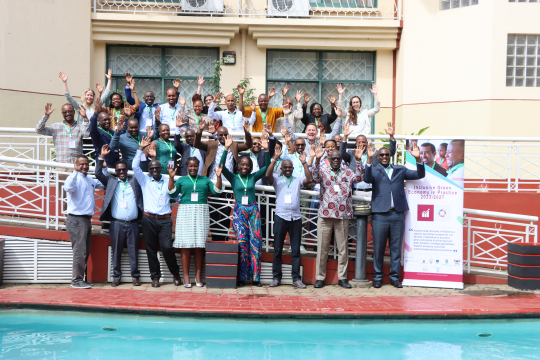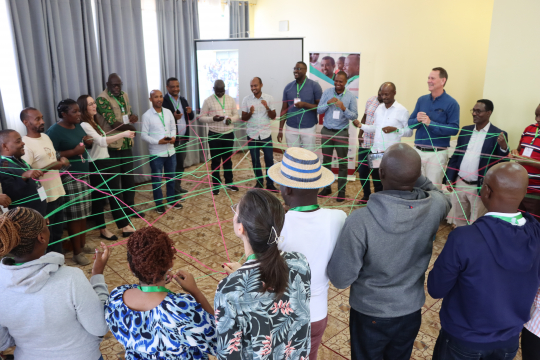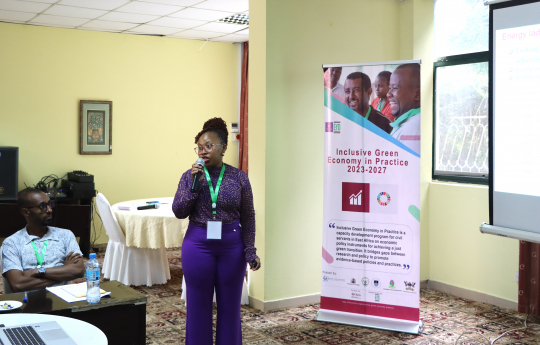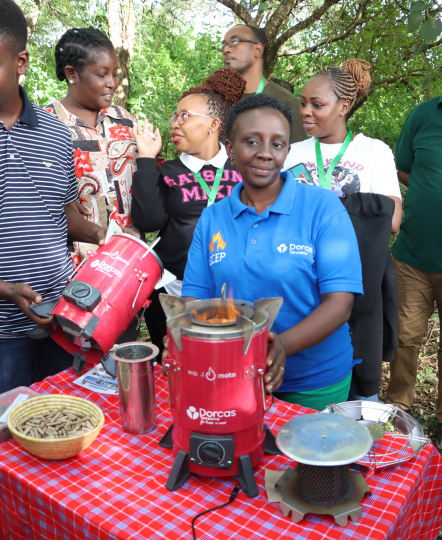Twenty civil servants from five East African countries met with 16 EfD researchers over four intense days to share knowledge and experience of policies to increase the use of clean cooking technologies. The barriers to this are similar in all five countries but the strategies for addressing them differ, leading to extremely productive discussions.
The harmful consequences of using fuelwood and charcoal for cooking have been on the agenda of policymakers and researchers for many decades. Three billion people around the world still depend on biomass for cooking and heating and hundreds of thousands of people in Africa die prematurely because of indoor air pollution.
Many barriers hinder a transition
Those facts may sound very discouraging. However, among the IGE Fellows attending their final workshop in Arusha, there seemed to be a consensus that this issue is finally gaining momentum, largely because of a growing awareness.
Barriers include among others, affordability (clean cooking is more costly than using firewood), lack of awareness, cultural values (the notion that the food tastes better cooked over an open fire), lack of infrastructure to distribute the cooking devices and the fuel for them, and when it comes to electric devices there are many rural areas with none or very unstable access to electricity.
Productive peer learning
Many interventions have been implemented in those five countries - Ethiopia, Kenya, Rwanda, Tanzania, and Uganda - over the years to address the use of biomass for cooking. Some have been successful and some have failed. In both cases, they have been learning examples.
“The peer learning was really productive,” notes Mary Mahumi from the Tanzania Forest Services.
“Most of our barriers to implementing clean cooking are shared, but the approaches differ.”
Long-term thinking and information are key
Convincing the politicians has shown to be a key factor. Tanzania’s president, Samia Suluhu Hassan, is a solid advocate for transitioning to clean cooking, which has played an important role in putting this issue high on the country’s agenda. In other countries, it has turned out to be harder to convince politicians about the urgency.
Another key factor is to think long-term. Some countries have implemented Result Based Financing (RBF) to make improved cookstoves and other cleaner technologies affordable for people. This has been successful for the distribution of cooking devices. But to make people continue using them, you need to share the knowledge and ensure that fuel and service are available.
Information campaigns have often shown to be a recipe for success and in many cases necessary to achieve the desired results of policy interventions.
Biomass issue gains momentum
“Starting from around the COP 28 meeting, I see momentum growing for this issue,” said Peace Kaliisa, Ministry of Infrastructure in Rwanda.
“In the last few years, we haven’t seen much happening and the finance sector has not been listening. But now people are open to more investment in clean cooking. Things will happen in upcoming years.”
The group met in Arusha, Tanzania and this was the final workshop of the cohort of 2023/24. But that doesn’t mean that it ends here. The meeting also included a kick-off to establish an alumni network, to keep sharing knowledge and supporting each other.
The learnings and conclusions from the workshop will be presented in a report that will be available on the EfD website. Stay tuned for more information about this!
By: Petra Hansson



